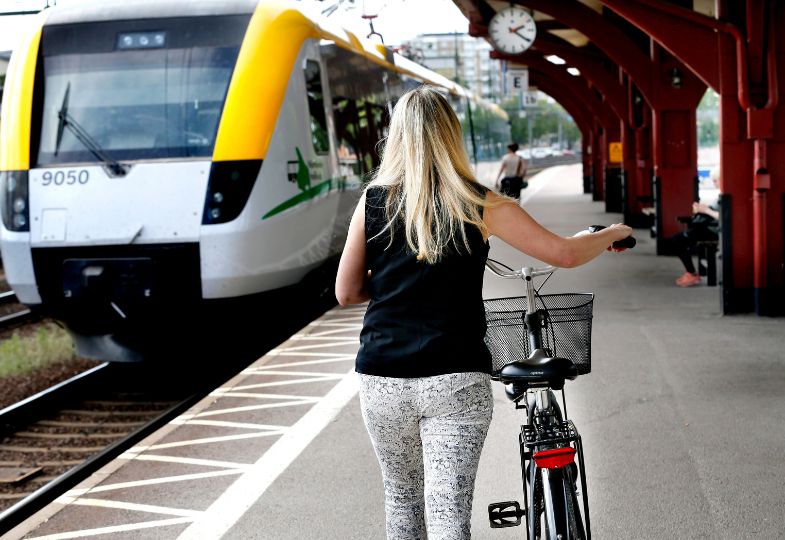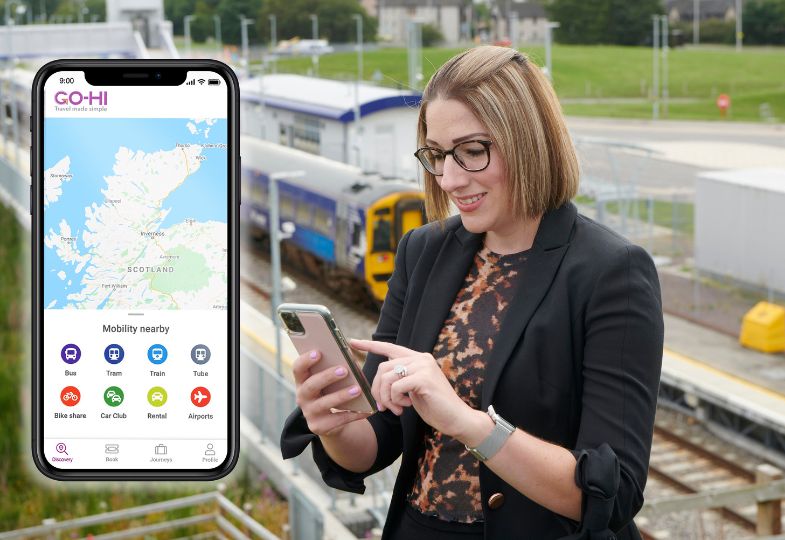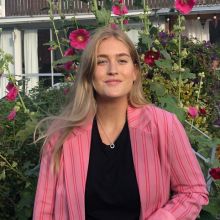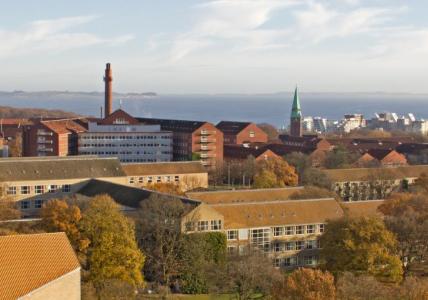Stronger Combined showed the importance of offering mobility as a service (MaaS) in rural areas.
In Stronger Combined a partnership of 13 municipalities, traffic operators, regions, and research institutes jointly explored a new way of thinking about mobility in rural areas.
Combined mobility offers an alternative to private vehicles ownership in sparsely populated areas, thereby tackling mobility and sustainability challenges. Stronger Combined tested and released Mobliity as a service (MaaS) through pilot projects, bringing the concept from urban to sparsely populated areas.
We also addressed the key challenges of public transport reformation by expanding the idea of what public transport is. Through our pilot projects we showed that public transport is more than just trains and buses.
Stronger Combined informed policymakers and expanded the knowledge of how important MaaS is to rural communities. In addition, we tried to change service preferences and expectations of rural citizens through innovation processes with the locals focused on non-traditional public transport. This enabled us to test the legal and administrative framework of operating transport systems.
How it took shape
The discovery made through several living labs showed that MaaS is equally important and useful in rural areas as in urban conditions. Through pilots in rural areas across the North Sea Region, Stronger Combined provided alternatives to private cars, including bike-sharing systems, a carpooling app, mobility hubs, a mobility app, open school buses in the countryside, and demand-responsive transport services in the Norwegian mountains.
A key insight from the pilots is that alternatives to private car travel must be equally good and comfortable. Since public transport in fact takes you from a place which is not your actual starting point, to a place which is not your end point, solutions are needed to fix the small travels from your home to the station and from the station to your end destination.
As an example, Region Värmland launched a bike-sharing system in two small towns of Värmland. Bikes were located at two train stations so that people arriving with the train could borrow a bike to cycle to their job. This was a real success, all the bikes were booked almost every single day, and the pilot will be made permanent in Karlstad during 2023.
I think that the bikes have worked great! I use them frequently because I work at the hospital and when I arrive to the station I still have some way to go. It's great to know that the bike I booked is waiting for me at the station.
Region Värmland also set up a pilot with open school buses in one rural part of Värmland since there has been a request for better public transport in the countryside in Värmland for years. Opening the school buses and using them as part of the public transport increased the mobility in the countryside. The school buses pass many homes on their way to and from the schools, and the open set-up enabled more people to take advantage of the buses to travel to work or reach a connecting bus.
This pilot project is still going strong and will be expanded to cover the whole region in the coming years.

In Värmland, the region lets residents borrow bikes for free, to fill the need for easy transport options between the station and people's homes or work places.
Another example is the Go-hi app launched by Hi-Trans. The app provides instant access to information on buses, trains, car clubs, car hires, bicycle hire, air travel and ferries all over the highlands and islands in Scotland. This allows users to plan their journeys for all modes of transport in one place. The app provides easy access to travel information and encourages a shift to public transport and active travel alternatives.
This pioneering project is an ambitious region-wide solution that has the potential to make a significant contribution to improve accessibility for residents and visitors. It also addresses government ambitions to reduce carbon emissions by encouraging a modal shift from sole-occupancy cars to shared cars and public transport alternatives. It will also help to create healthier lifestyles by improving the sustainable travel choices people can make in the region including active travel opportunities.

The GoHi app enables users to discover nearby transport options in the Scottish highlands and islands.
Another pilot was set up by our Norwegian partner Innlandstrafikk. Focusing on tourists, they offered demand-responsive transport (DRT) to and from Jotunheimen, home to some of the tallest mountains in Norway. The service was set up for hikers to be able to travel smoothly to and back from the mountains without depending on a car, providing an eco-friendly option.
Innlandstrafikk created a marketing platform through Stronger Combined and collaborated with local and national tourist organisations to spread the word. The platform is still used and has become a cornerstone for the marketing of the concept. Although Covid-19 put the services to a halt during much of 2020 and 2021, the users of the DRT service grew by 37% during the project period.
The Norwegian pilot proves that MaaS services in rural areas is useful for tourists and benefits the tourist economy.
Behavioural change
Another insight from the project is that it takes time to change people's behaviour when the car is so integrated in their daily life. Behavioural change is needed to change the mobility mindset, including how people are used to going from A to B.
An example of a change of mindset is the pilot project in the Flemish region of Genk. The city of Genk launched two pilots, Testbicyklet and a cycling library. The two pilots let residents rent a bike for a longer time for a small cost. As a result, bike ownership increased in the region.
The Flemish way
Mobility does not just involve getting from one place to another, which can be seen in Flanders. The partner Westhoek set up and created a village hub formula that functions as a social, commercial and mobility service point as part of Stronger Combined. Their set-up has become a model for village hubs, resulting in fewer trips to urban centres, improved quality of life in rural villages, and new mobility solutions.
The Flemish model has not only had a positive impact on the local residents in the pilot. It has also created a lot of attention in nearby areas and in Ireland, the Netherlands, and other parts of Belgium. The city of Genk, a Stronger Combined partner, will be revisiting the idea of mobility hubs in 2023 with the Flemish strategy as a base.
Learn about the concept and why the local villagers love it below:
Ups and downs with Covid-19
As the whole world was affected by the pandemic, so was Stronger Combined. There were 18 months of no or severely restricted travelling - which naturally made it tough for a project focused on increasing mobility without using private cars.
Several pilots were delayed. In addition, the project suffered from the restrictions on face-to-face meetings which are so important for the cooperation and mutual inspiration taking place in a transnational project. One of the solutions was monthly online check-ins just to speak to everyone and hear what was going on throughout the project.
One effect of the pandemic was beneficial though: New ways of travelling started to take form, and people were more positive towards biking as well as the bike-sharing systems set up by Stronger Combined.
And despite the obstacles, Stronger Combined can look back on a successful project, with 22 of 25 pilots continuing to operate after project closure.
Project leader Sebastian Tay Hannebo says: "As we come to the close of the 'Stronger Combined' project, we've learned a lot from working together with organisations from different parts of the North Sea region. Each had their own ideas and approaches to improving rural mobility. It's like a mix of various flavours, and the beauty lies in the combination. We have seen how diverse ideas from different countries can come together and inspire each other to create better solutions for our rural communities."
This project is a perfect example of how different countries can collaborate to make rural life better and by working togethe. We have realised that we truly are Stronger Combined.
Top 3 project highlights
Promoting MaaS in rural areas
Through its pilots, Stronger Combined laid the foundations for extending the concept of Mobility-as-a-Service (MaaS) to rural areas.
Durable work
Out of the project's 25 pilots, 22 are being continued after project end, demonstrating that the new mobility services are needed and used.
Holistic approach
Mobility is linked to the rural economy, tourist industry, and rural communities. Stronger Combined showed that considering all those aspects paves the way for success.
About Stronger Combined
Stronger Combined was implemented in the four-year period 1 January 2019 to 31 December 2022.
The project was led by Region Värmland, Sweden. The partnership included 12 additional organisations in seven North Sea Region countries: Rise, Hallandstrafiken and Samtrafiken (Sweden); Innlandstrafik (Norway); Energibyen Skive (Denmark); Publiec Vervoer –groninge drenthe, Dienstverlenende Vereniging Westhoek (the Netherlands); City of Genk, Antwerp Management School (Flanders), City of Rinteln (Germany), Hi-Trans , IBI Group and INGHA (the UK).
Get in touch
Are you curious to know more about Stronger Combined? Contact the project leader Sebastian Tay Hannebo at sebastian.tayhannebo@regionvarmland.se
About the author

Ida Tiverman was the communication manager of Stronger Combined.



